注意,第七周是考试周,我其实把考试的的内容压缩进了第06周的笔记中去,所以第七周没有单独笔记。但是所有课堂内容没有缺失,特此声明。
Week 08 tasks:
- Lectures: unsupervised learning: clustering and expectation maximization.
- Reading: Chapter 6 of Mitchell, and the supplementary notes on Expectation-Maximization and clustering.
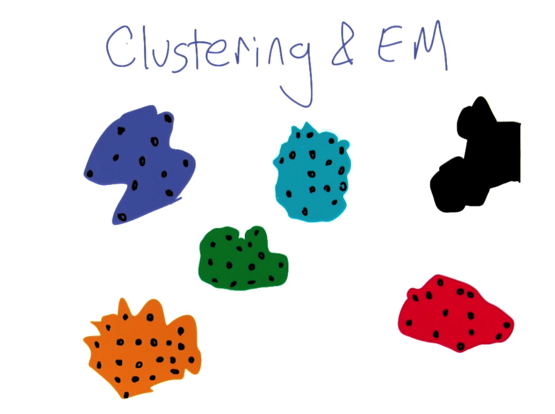
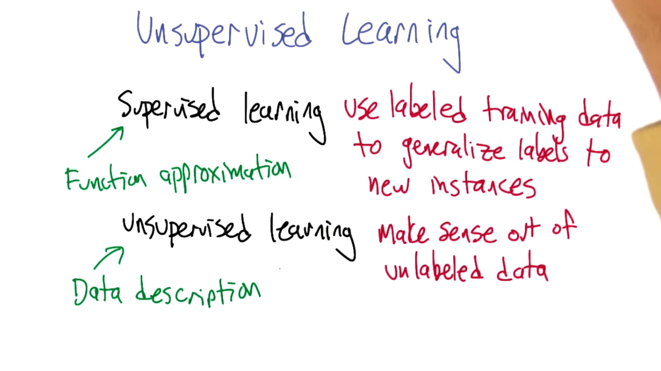
- Supervised learning: use labeled training data to generate labels to new instances. Can be seen as function approximation.
- Unsupervised learning: make sense of unlabeled data. Data description, when new instance presents, describe it with the generated data description.
Basic Clustering Problem
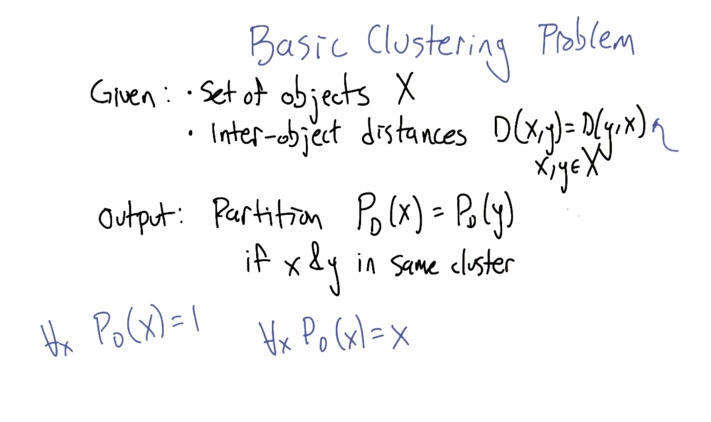
- definition: given set of object X and inter object distance D(x,y) = d(y,x), we can partition the input and put x and y into the same cluster when PD(x) = PD(y)
- extreme cases: when PD(x) = 1, then will be only one cluster; when PD(x) = x, then each x is a cluster (each cluster has only one item).
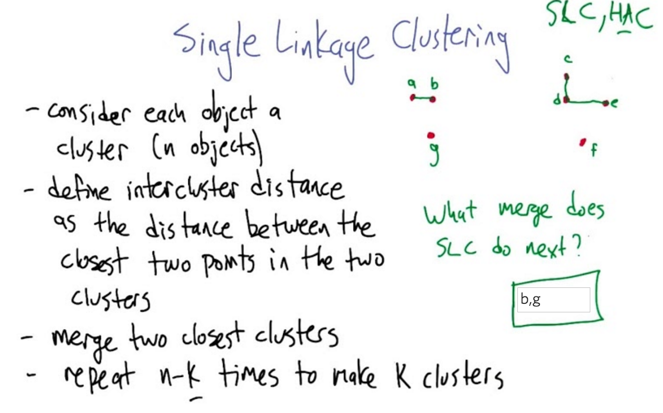
- Single Linkage Clustering: first define each object as a cluster, and then find out the closest two points and merge them ( like kNN). The distance function could be customized. Repeat N-k times can get k clusters
- k is prior knowledge
- quiz, what two points should be linked together next?
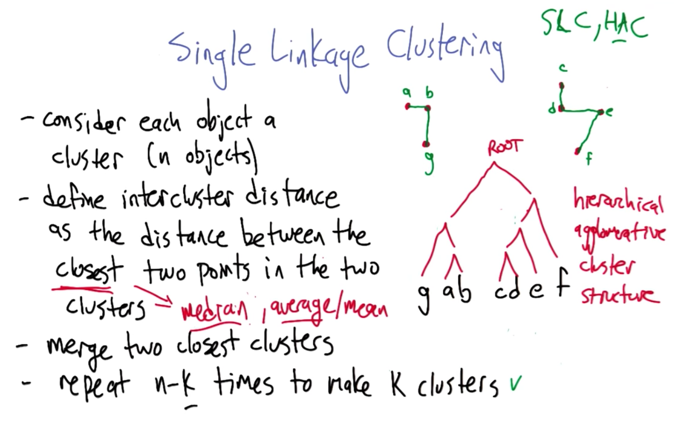
- the clustering process could be represented as a hierarchical tree structure
- the distance function could be mean, median…
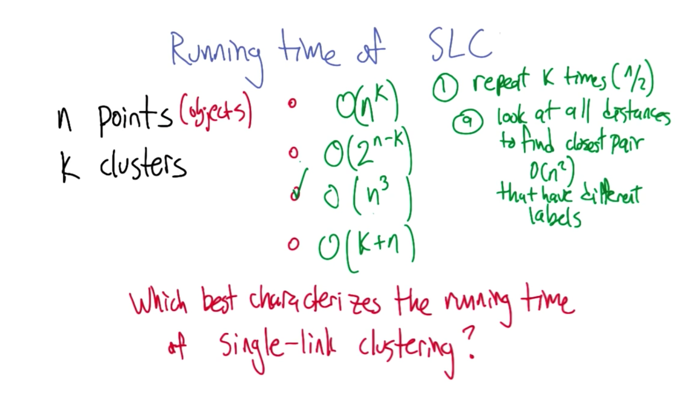
- For SLC, we need to look at each pair can find the one has the smallest distance and this is a O(n2) process. And we need to do this about n times. So the answer is O(n3)
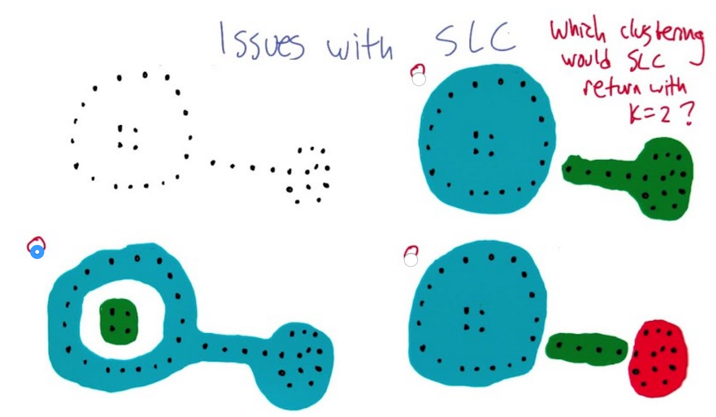
- SLC could not clustering this problem correctly
K-means
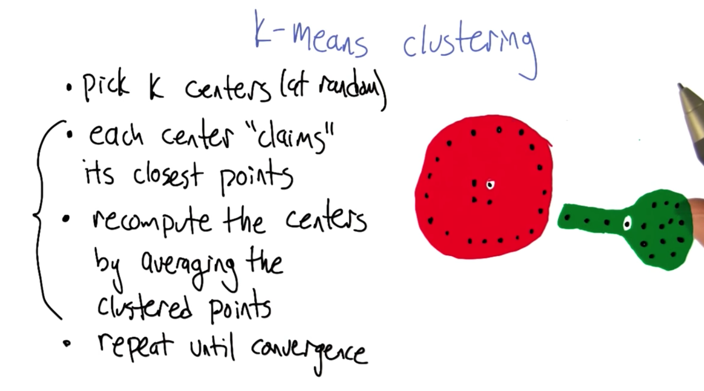
- randomly initialize k centers
- each center claims points to cluster the data
- recompute the center by average the clustered points
- repeat above until converge.
- Question: does it always converge?
K Means in Euclidean Space proof
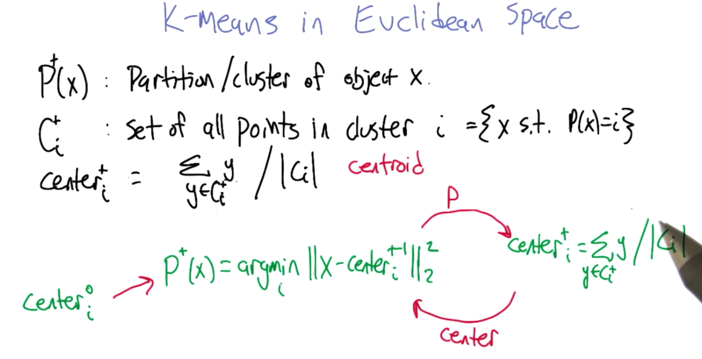
- Terms: partition, cluster and center
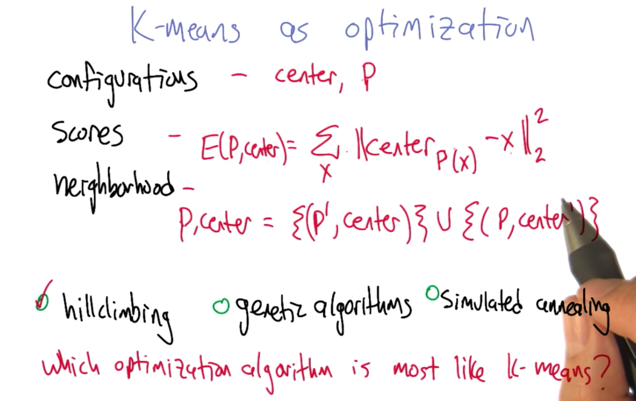 Not sure how to understand the definitions here.
Not sure how to understand the definitions here.
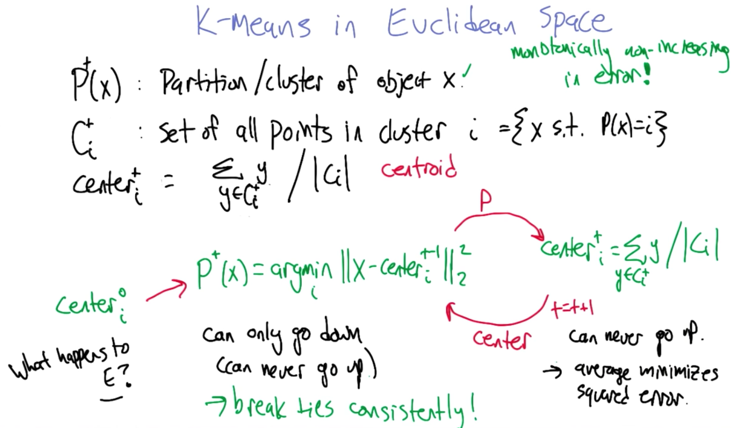
- the error can never go up for partition part and re-centering part of the clustering process
- given the that the partition/clustering space is finite, K-means will converge in finite time.
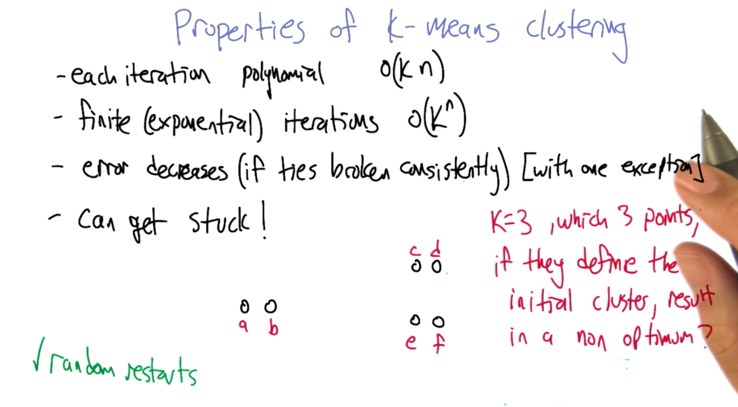
- it’s possible for K-means to stuck at a local optima, but this can be solved by random restart ( like random hill climbing in the optimization)
Soft Clustering
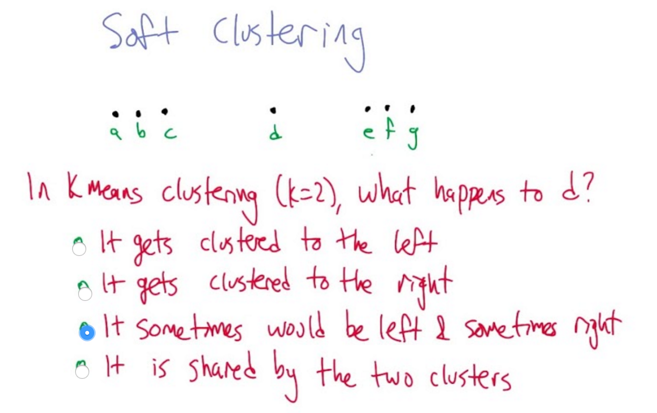
- K-means and SLC could not give the point d a definitive cluster
- Solution: lean on possibility :)
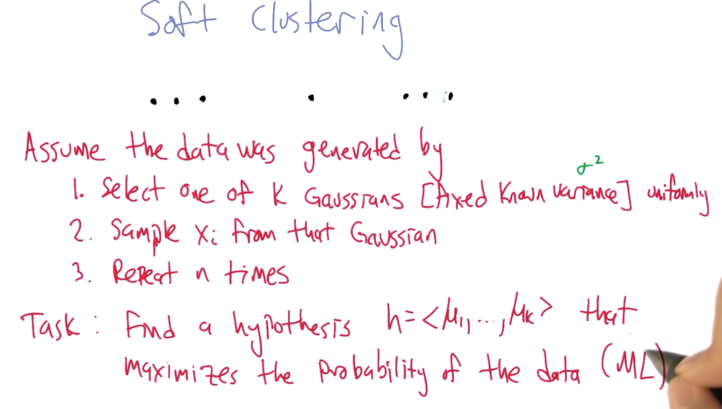
- here ML is maximum likelihood.
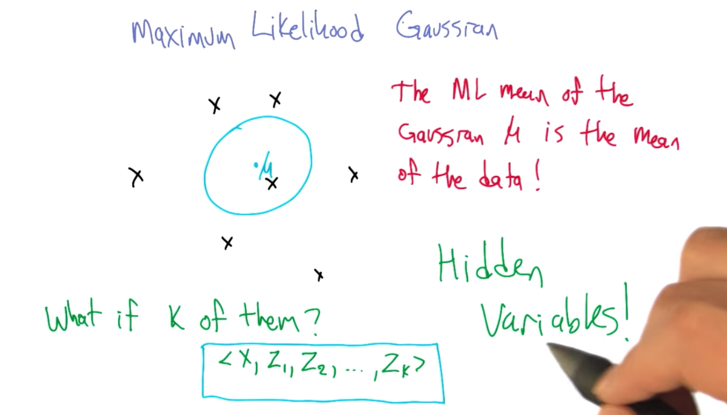
- Hidden variables are used to keep track which Gaussian distribution that x is generated from
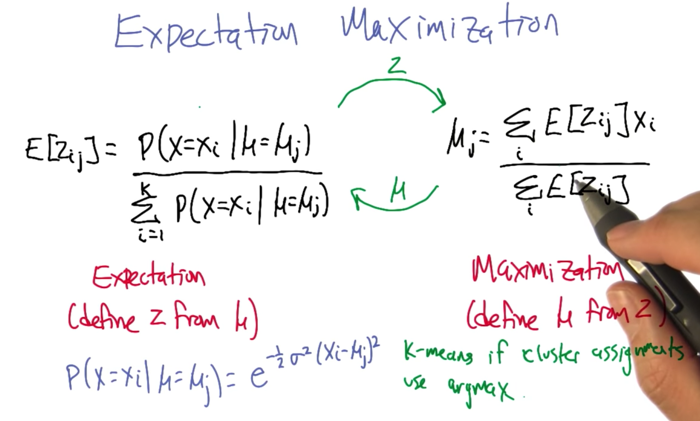
- there are expectation and maximization for the soft clustering. The probability of Xi in the i cluster is between 0 and 1.
- soft clustering can be converted to K-means if push the probability to be 0s and 1s.
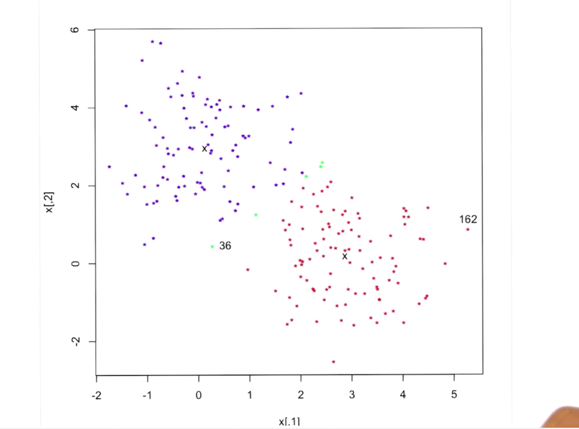
- given K, randomly generate k centers
- with each iteration, the centers were recalculated and the probability of the each point is in a cluster is also updated until converge.
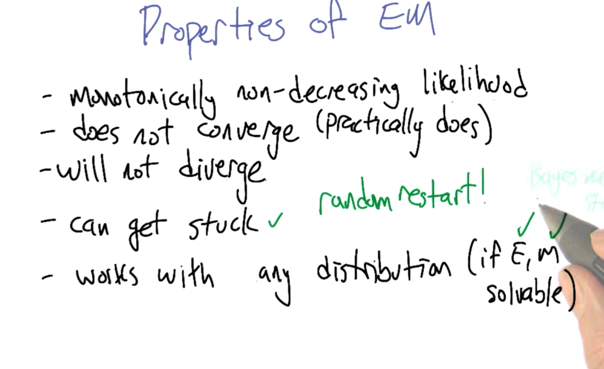
- the reason that EM does not converge is because there are infinite number of configurations.
- Local maxima problem can be solved by random restart
- E, M might be different for different problems
Clustering Properties
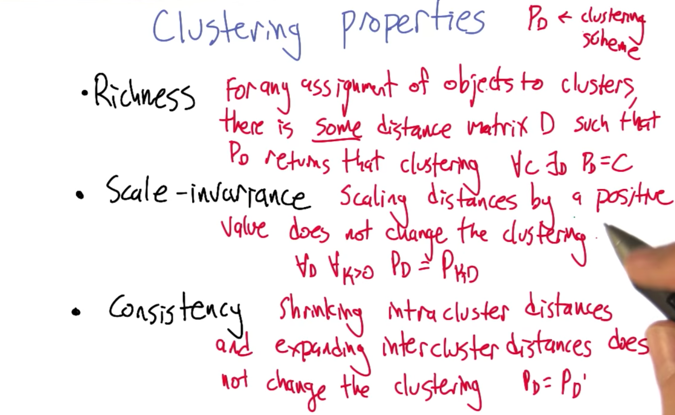
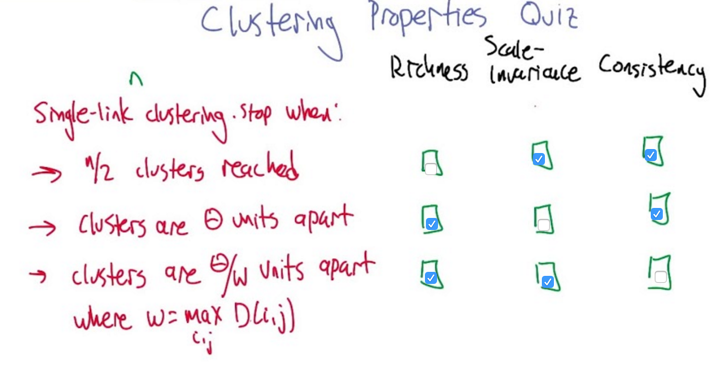
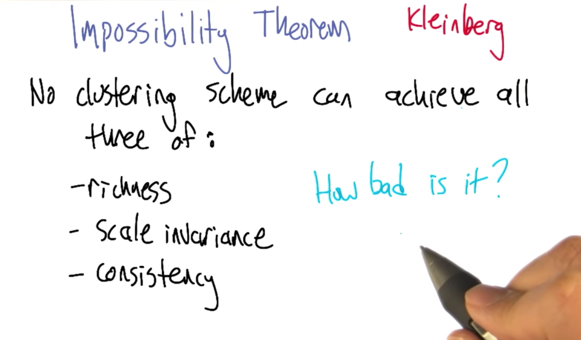
- It’s not possible to have all three properties.
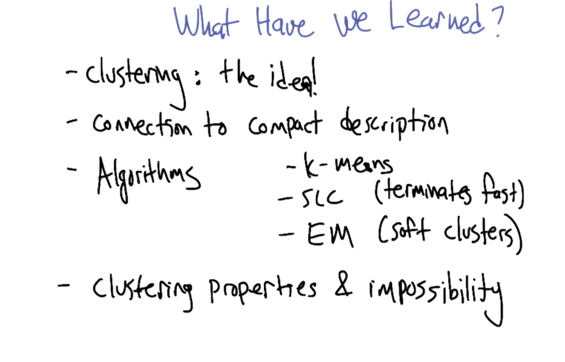
2016-03-02 初稿, SLC
2016-03-14 K-Means
2016-03-15 EM